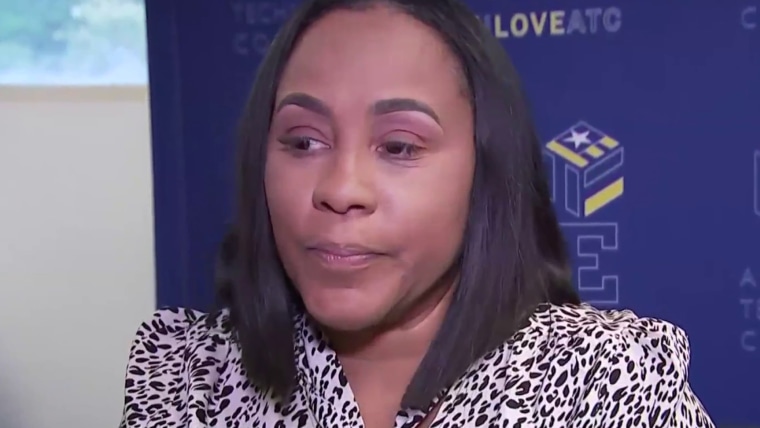Fulton County District Attorney Fani Willis, who has been investigating attempts to overturn the 2020 election in Georgia, is expected to present her case to a grand jury next week.
The bulk of Willis’ investigation is likely to overlap with Jack Smith’s own federal investigation into attempts to overturn the election.
But there is one significant way in which Willis’ case is expected to differ from Jack Smith’s.
That statute would give Willis broad discretion in how she constructs her case against the former president.
Legal experts have suggested that, if Willis chooses to indict Trump and his allies, she may charge them under Georgia’s state RICO law. That statute would give Willis broad discretion in how she constructs her case against the former president — discretion that no other prosecutor currently bringing a case against Trump has.
RICO typically refers to the Racketeer Influenced and Corrupt Organizations Act, a federal law that the Department of Justice has long used to prosecute organized crime. But many states have adopted their own versions of the federal RICO statute.
Georgia adopted its RICO statute in 1980, shortly after the federal government brought its first ever case under the federal version of the law. At the time, Atlanta was experiencing a spike in crime. The previous year Georgia’s governor sent state troopers into Atlanta as part of an effort by the state government to crack down on crime.
By the time Georgia legislators adopted their own statute, tough-on-crime policies that gave broad authority to prosecutors were already popular among state lawmakers. Legal scholar Norm Eisen described the adoption of Georgia’s RICO law to the New Yorker this way:
Georgia created its rico statute in 1980, less to target the Mafia than to go after Black street gangs and “nontraditional conspiracies,” as Norman Eisen, a former trial lawyer and a senior fellow at the Brookings Institution, put it to me. (The Georgia Assembly cited the need to address “the increasing sophistication of various criminal elements.”)
As a result, Georgia’s RICO law gave prosecutors much broader authority than the federal statute. Atlanta Magazine described the differences this way back in June:
A federal case requires proof of both an enterprise and a pattern of crime through that enterprise. A Georgia case, however, could be made against an individual committing interrelated crimes — even without an enterprise.
Fani Willis could use Georgia’s RICO law to incorporate a wider array of actions taken by Trump and his allies to try to overturn the election in Georgia. And she wouldn’t have to limit herself to proving specific crimes carried out personally by the former president and his allies.
There are reasons to believe Willis is preparing to do just that.
During her time as district attorney, Willis has brought several high profile RICO cases. In 2013, Willis used Georgia’s RICO statute to indict Atlanta teachers who conspired to rig standardized testing scores.
More recently, she used the statute to charge hip-hop artist Young Thug and 27 associates for their alleged involvement in murder, armed robbery and drug dealing.
In March 2021, Willis hired John Floyd, an expert in Georgia’s RICO statute, to assist her with multiple cases, including potentially her investigation into the 2020 election. Floyd also assisted Willis in bringing her RICO case against the Atlanta teachers.
Willis has also told reporters in the past that she is a “fan of RICO” as a tool for prosecutors.
Should Fani Willis choose to use this “tool” in bringing charges against Trump, it could set her case apart from those already being brought against the former president.
This is an adapted excerpt from the August 9 episode of “Alex Wagner Tonight.”

